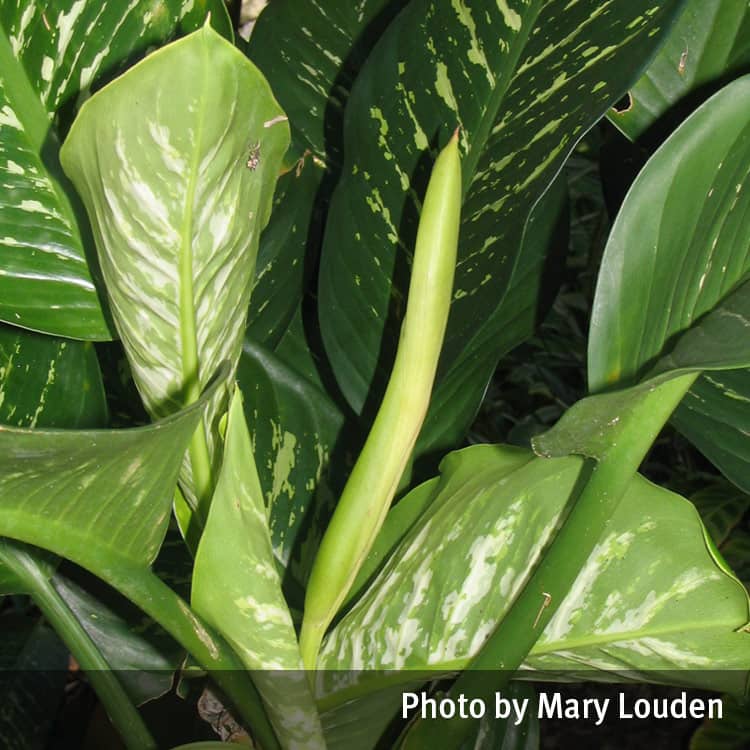Warning
Seek urgent medical attention if lips or tongue become swollen or if there is difficulty breathing or swallowing.
Description
An ornamental to 2.5m, commonly grown for its decorative mottled foliage as a shade house or indoor plant.
The flowers consist of a greenish coloured bract or sheath called a spathe, surrounding a long central spike crowded with small florets.
Toxicity
Symptoms
The leaves, if chewed, will cause copious salivation and an intense burning sensation, followed by a swelling of the lips, mouth, tongue and throat. This causes difficulty in breathing and swallowing, as well as making the tongue immobile rendering the person speechless. This effect can continue for several days. Handling the plant may cause skin irritation.
Images

Details
Common name: Dumbcane
Botanical name: Dieffenbachia species, most commonly Dieffenbachia picta
Other common names: Dieffenbachia
Family: Araceae
General description: An ornamental to 2.5m, commonly grown for its decorative mottled foliage as a shade house or indoor plant.
Flowers: The flowers consist of a greenish coloured bract or sheath called a spathe, surrounding a long central spike crowded with small florets.
Leaves: The leaves are large, elliptic or oblong, 30-45cm long, fleshy with a prominent midrib, green mottled with white, cream or yellow, or sometimes entirely green.
Fruit/Berries: The fruit are rare or absent in cultivation.
Other: The sap is clear.